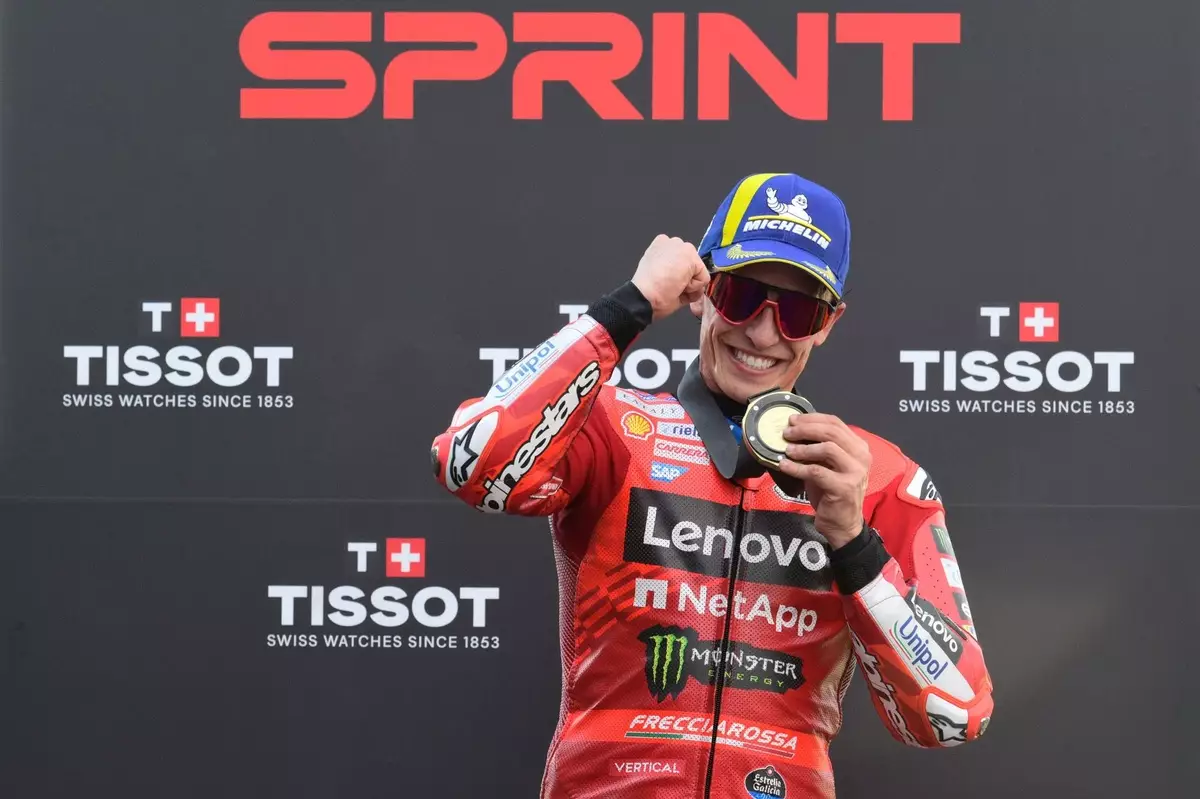The world of MotoGP is a high-stakes arena where raw talent meets intense pressure. One of the most decorated riders in the sport, Marc Marquez, showcased his prowess during the Thailand Grand Prix sprint race. However, his post-race comments illuminate a deeply reflective mind, revealing a champion who is cautious about drawing definitive conclusions too quickly. While celebrating a significant victory, Marquez remains grounded, understanding the volatile nature of motorcycle racing.
MotoGP: A Landscape of Uncertainty
MotoGP is renowned not just for its exhilarating races but also for its unpredictable dynamics. As Marquez achieved a dominant lights-to-flag victory in Buriram, it’s evident that one strong performance does not guarantee future success. Marquez prudently acknowledges that much can change within the span of a single race weekend. His refusal to proclaim absolute happiness is a testament to his maturity and understanding of the sport. In an environment where even the best fall prey to unforeseen circumstances, his cautious approach ensures that he remains psychologically prepared for whatever challenges may lie ahead.
Qualifying on pole was no small feat, but Marquez’s true mastery was displayed in the race itself. He not only earned the prime starting position but also executed a race strategy that prioritized safety alongside speed. By maintaining a one-second lead over competitors, he showcased remarkable control without overstretching his capabilities. His decision to restrain himself and ride comfortably, rather than pushing the limits to an extreme, speaks to a seasoned athlete’s wisdom. Such strategies can be pivotal, particularly in a sport where mistakes can yield catastrophic results.
“Holding back” in motorcycle racing might seem counterintuitive, but Marquez seems to have mastered the balance between aggression and caution. He emphasized his experience throughout his career—an understanding that consistency often outweighs the need for excessive bravado. Instead of seeking out maximum speed at all costs, Marquez utilized his experience to gauge when to reign in his efforts, consciously preserving his energy and focus for subsequent races.
For an athlete of Marquez’s caliber, expectations are as much a part of the game as the physical demands of racing itself. The pressure from fans, teams, and sponsors to win is ever-present. Marquez articulated this phenomenon, shedding light on the challenges that mental strain can impose on a rider. Rather than allowing the barrage of optimistic messages from friends and fans to cloud his judgment, he takes a pragmatic approach, reminding himself that the path to glory is strewn with the possibility of setbacks.
His comments about the dangers of succumbing to pressure reveal a sobering reality: the MotoGP circuit is a world championship where even a momentary lapse in focus can result in failure. By choosing to focus on maintaining his previous form and resisting the urge to chase unrealistic expectations, Marquez positions himself as a rider who respects both the sport and his own limits.
As Marquez approaches the next challenge within the series, the lessons learned from the sprint race in Thailand will undoubtedly shape his strategy moving forward. It’s a competitive landscape that demands constant adaptation, and this championship-winning mindset is what empowers him to remain within the elite echelons of MotoGP racers. The importance of not only riding fast but riding smart cannot be overstated in this high-pressure sport.
Ultimately, Marquez’s victory serves as both a personal achievement and a reminder of the discipline required at this level of competition. His ability to find joy in the moment without losing sight of future challenges sets him apart as not just a racer but a strategist. In a sport where unpredictability is the only certainty, Marquez’s measured approach could very well be the key to maintaining his position at the top of the MotoGP hierarchy. As the season unfolds, fans and competitors alike will keenly watch how this incredible athlete balances expectations, strategy, and performance on the winding roads ahead.


Leave a Reply